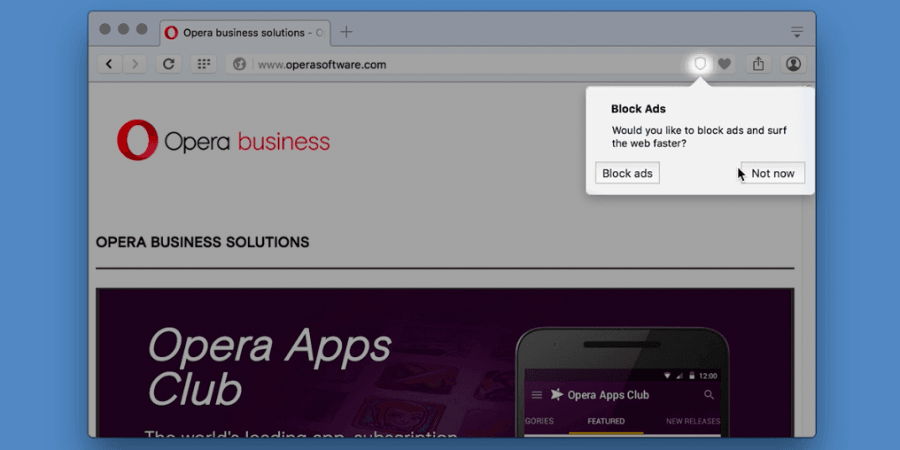
Opera has pulled the wraps off the latest addition to its browser: native ad blocking. This move makes Opera the first big-ticket web browser to introduce such a feature.
"If there were no bloated ads, some top websites would load up to 90 percent faster," said Krystian Kolondra, SVP of Engineering and head of Opera for computers, on Opera's official blog.
The feature is currently available only in the developer release of the desktop browser. It promises "unmatched speed" when compared to extensions as the blocking takes place at the web-engine level.
While the first ads began cropping up online in the mid 1990s and were instrumental in helping the Internet grow, ads today take up more bandwidth than ever, seriously hampering the web browsing experience, said Kolondra on the blog, adding that ads have also resorted to tricking users into clicking them.
In the 2015 ad-blocking report by Pagefair and Adobe, it was noted that ad blocking grew 41 percent in 2015, with over 198 million users actively blocking ads. The use of ad-blocking programs has grown in popularity to the extent that even Apple allows their use in its native apps.
The new Opera browser also allows users to compare the time it takes for a page to load with the ad blocking feature turned on and off, and like the extensions available in the market, Opera's ad-blocker also gives the user the option to white-list pages, displaying the ads on them.
Global marketing solutions company Annalect feels the popularity of ad-blockers is a welcome change as it will get advertisers and websites to evolve and improve the quality of ads. It considers ad-blockers a direct response to tactless advertising that disrupts the online browsing experience. It presents the example of the New York Times offering native ads that give readers more value than regular ads, which has seen immense success.
While ads may ruin user experience, a blanket ban on all online advertisements is sure to prove detrimental to the growth of the web. This has prompted AdBlock Plus, a popular ad-blocking extension, to seek a middle ground and white-list certain websites provided they adhere to certain guidelines. AdBlock Plus offers users the option to enable Acceptable Ads, which do not disrupt the reading experience, and invites its users to participate in the dialogue on their forums.

















